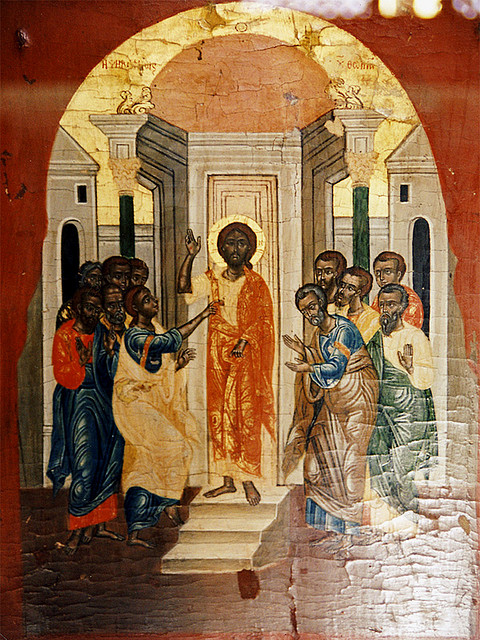Tagged: mentally enslaved
view one of the earliest known images of black Jesus

Why am I seeing this image for the first time TODAY?! This painting is located at the Coptic Museum in Cairo, Egypt and is said to be older than the image of the black Jesus Christ located in the Church of Rome, which is from the 6th century.
And to think, an African American teenager was almost suspended from school THIS YEAR because he dressed up as Jesus for Halloween when it is clear as day that Jesus [and his followers] was BLACK and of AFRICAN ancestry!!
The “race” and/or color of Jesus has been debated for hundreds of years, but can someone explain to me why NOBODY mentions or brings up this painting? Why are black Christian pastors refusing to show members of their congregation this image of Jesus, especially if it is one of the earliest paintings the world has of Jesus?!? Do they even know about this painting’s existence? And why are there no high resolution images of this painting anywhere online? Can someone go to Cairo, take a picture of this painting and upload it online for the world to see?! Smdh…
If blacks knew that God and God’s son were black, would they accept being a slave to a person classified as white? Would blacks ever accept the myth that their skin color makes them INFERIOR? HELL NO!!! Wake the fuck up black people!! We must eradicate global white supremacy (racism)!!!
“The American Negro must rebuild his past in order to make his future. Though it is orthodox to think of America as the one country where it is unnecessary to have a past, what is a luxury for the nation as a whole becomes a prime social necessity for the Negro. For him, a group tradition must supply compensation for persecution, and pride of race the antidote for prejudice. History must restore what slavery took away, for it is the social damage of slavery that the present generation must repair and offset.” — Arturo Alfonso Schomburg
Source: From the essay “The Negro Digs Up His Past,” 1925.